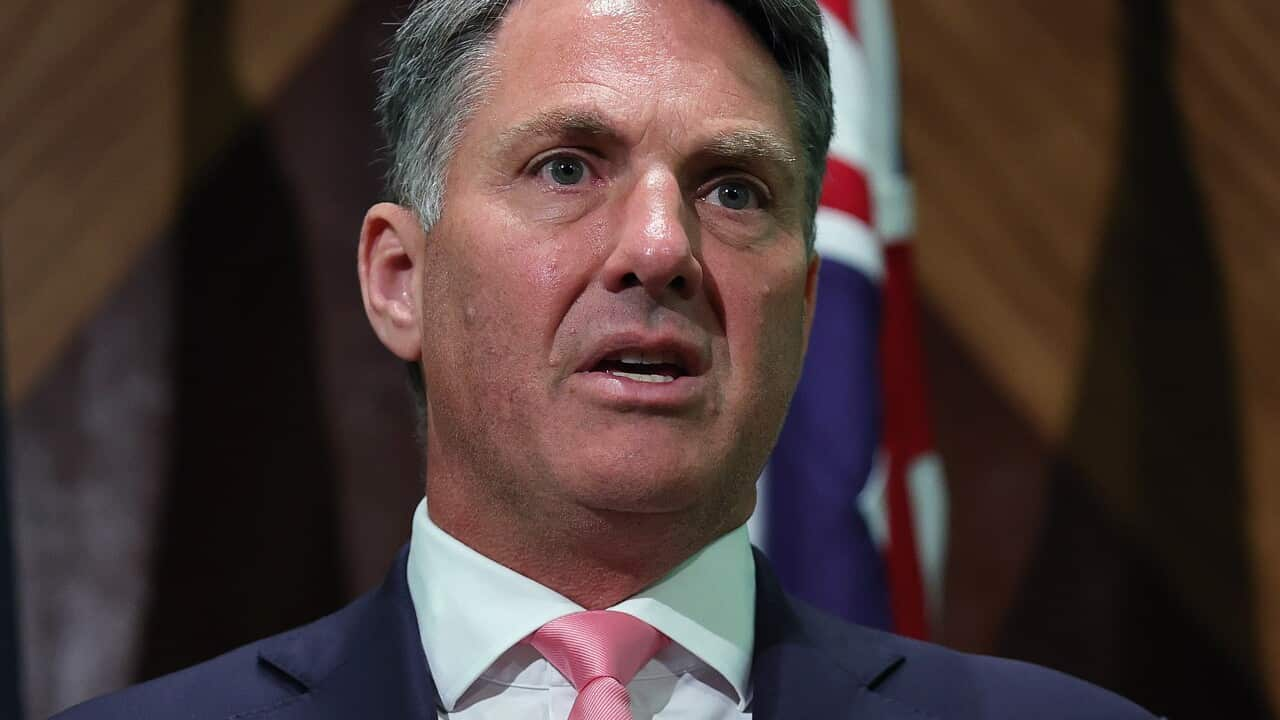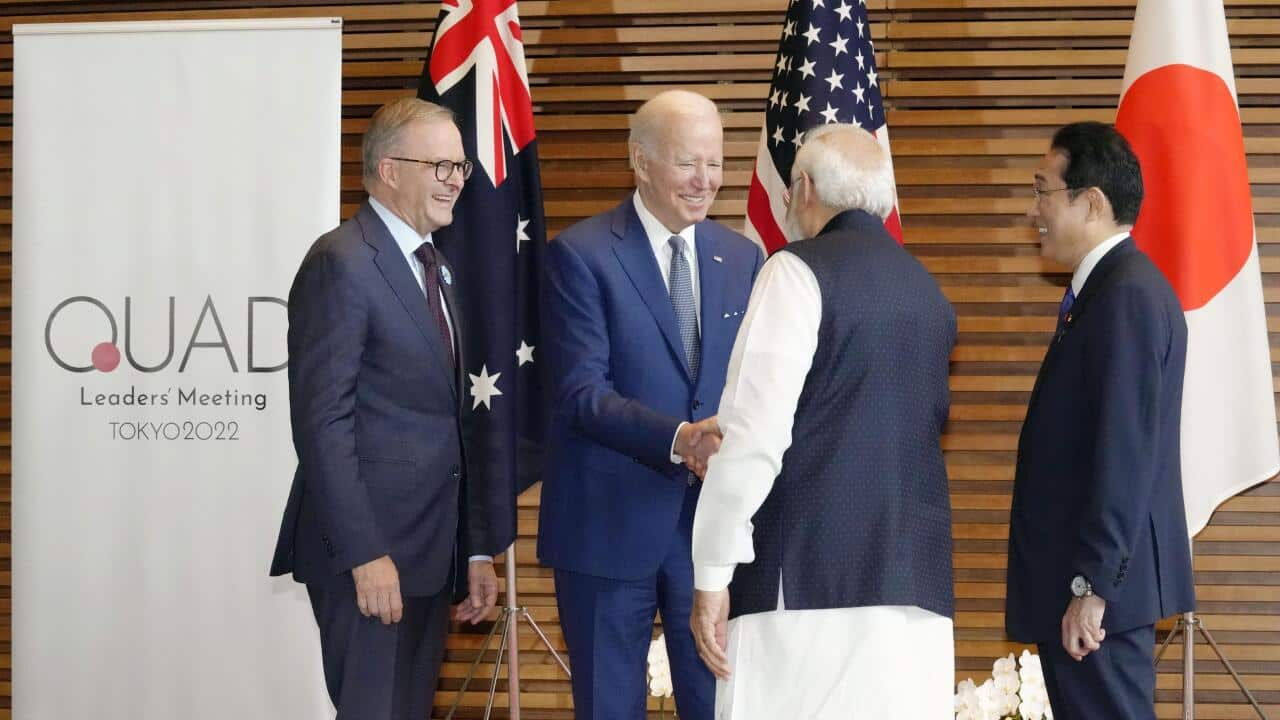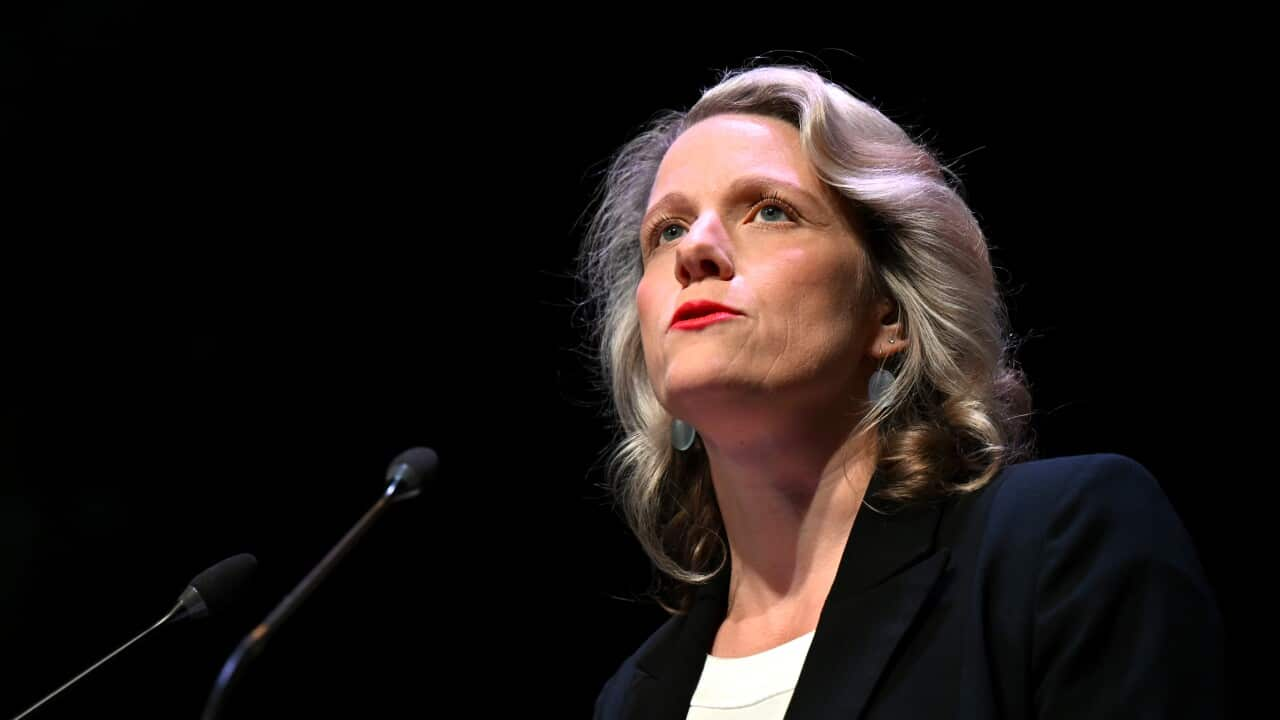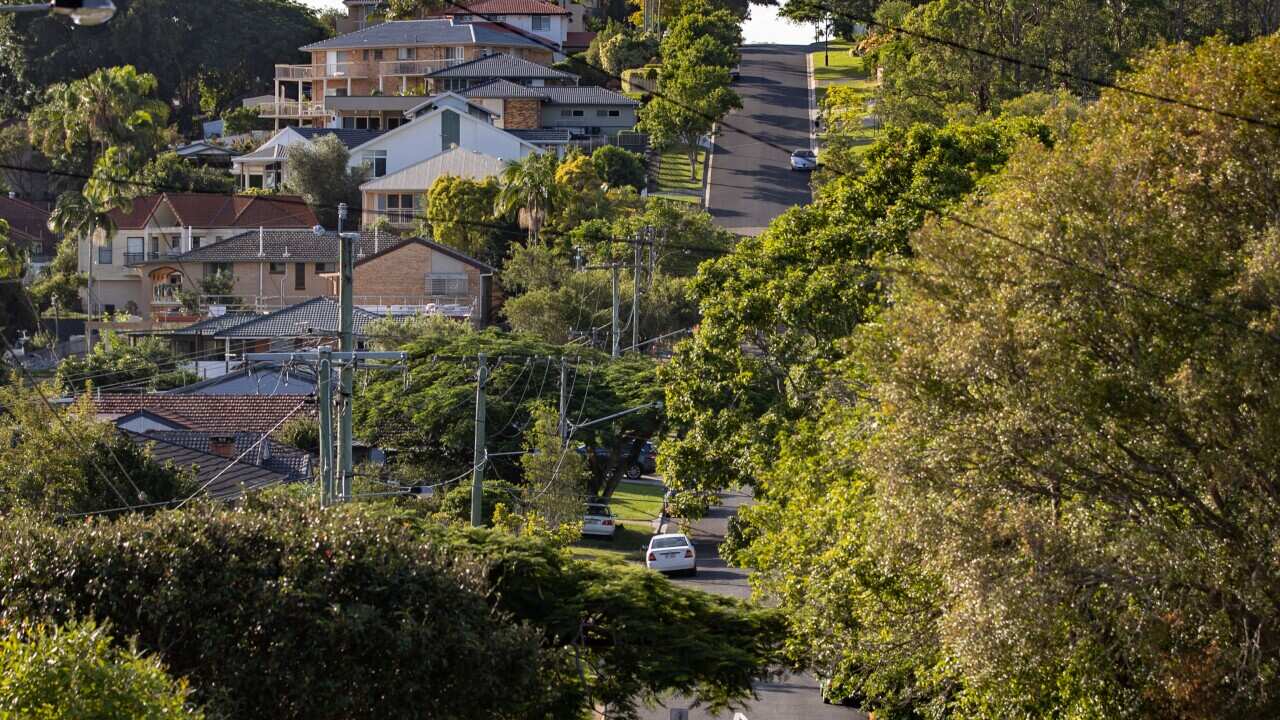Acting Prime Minister Richard Marles has confirmed the government has turned back its first asylum seeker boat.
Mr Marles also labelled the Morrison government's decision to text voters on election day about a boat that had been intercepted near Christmas Island as a "disgrace" that made the nation "less safe".
An Australian Border Force spokesman said Operation Sovereign Borders safely returned the boat back to Sri Lanka on Tuesday after.
"The direction to me, by the acting prime minister was clear - this government remains committed to Operation Sovereign Borders, and to the protection of lives at sea," Joint Agency Task Force Operation Sovereign Borders commander Rear Admiral Justin Jones said.
Mr Marles said Labor's policy on boat turnbacks had not changed since 2015, and slammed the former Morrison government's decision to release a press release about the intercept.
"I think what we saw on Saturday was a disgrace," he told Sky News on Tuesday.
"And it was a real low point in the way in which the former government engaged in politicising national security.
"This should never have been in the public domain. The text that was sent out by the Liberal Party in that moment made our country less safe, made our borders less secure."
Mr Marles said he had requested the secretary of the Department of Home Affairs to report back to the government on the circumstances of the information being made public on election day, describing it as "not routine".
"What's really clear is that the former Liberal government was far more interested in its own political interests than in the national interest," he said.
"It sought to create division where there was none. Everyone knew that there was bipartisanship in relation to maintaining strong borders and that is a national asset.
"But what that government did was seek to undermine that for its own political purposes."
The acting prime minister vowed the Albanese government would not use matters of national security for "political gain" and would act in the national interest.
'Serious economic situation': Treasurer Jim Chalmers warns inflation expected to rise further
Consumer confidence has stabilised after weeks of decline over concerns about cost of living pressures, but new treasurer Jim Chalmers has warned inflation has further to rise.
Mr Chalmers was sworn in on Monday after Labor secured at least a minority government at Saturday's federal election, and has been receiving briefings from Treasury officials in the past couple of days.
"There is no use mincing words, this is a serious economic situation that we are inheriting from our predecessors," he told ABC radio on Tuesday.
"What will change, you now have a government that understands these cost of living pressures and has a plan to deal with them over time."
The Reserve Bank of Australia expects the inflation rate to hit 6 per cent at the end of the year, having already reached 5.1 per cent - the highest level in over two decades.
The weekly ANZ-Roy Morgan consumer confidence index - a pointer to future household spending - rose 1.7 per cent, a partial recovery after a 7.7 per cent drop over the past month and to its lowest level since August 2020.
However, at an index of 90.3 and below 100 it still indicates pessimists outweigh optimists.
ANZ head of Australian economics David Plank said the fall in the unemployment rate to 3.9 per cent, its lowest level since 1974, may have contributed to the lift in sentiment.
"Most of the survey was conducted before the federal election results were known, so the reaction to the election will be captured in next week's index," Mr Plank said.
Labor will 'work with all countries in region'
The new Albanese government says it wants to work with all countries in the region after Beijing signalled a possible thawing in the frosty relationship between China and Australia.
China's Premier Li Keqiang has reportedly sent a congratulatory message to Prime Minister Anthony Albanese, saying Beijing is willing to push forward bilateral ties with Canberra.
"The sound and stable development of the Sino-Australian relationship conforms to the fundamental interests and common aspirations of the two peoples and is also conducive to peace, stability, development and prosperity in the Asia-Pacific region," the Chinese Communist Party-run China Daily newspaper reported Mr Li as saying.

Chinese Premier Li Keqiang has reportedly sent a congratulatory message to Anthony Albanese (Ding Haitao/Xinhua News Agency via AP) Source: AAP / Ding Haitao/AP
When asked on ABC radio whether China was now out of the "deep freeze", Mr Chalmers said, "We want to work with countries in our region to make sure it is stable and prosperous".
That was the reason Mr Albanese and new Foreign Affairs Minister Penny Wong were in Tokyo to engage with Australia's Quad colleagues the US, India and Japan, he said.
"That's why the developments on the trade front are so exciting, because we want the region to grow strongly," Mr Chalmers said.
"We want all of our economies to benefit from that and we will engage with countries in the region on that basis."
China cut off diplomatic and trade channels with Australia in a largely symbolic act of fury last May, following clashes over issues including human rights, espionage and COVID-19.
Tensions between the countries soared after Canberra called for an independent probe into the origins of the pandemic and banned telecoms giant Huawei from building Australia's 5G network.
China responded by imposing tariffs or disrupting more than a dozen key industries, including wine, barley and coal.
Barnaby Joyce's Nationals leadership under pressure
The Nationals will renegotiate its coalition with the Liberal Party following a crushing federal election defeat, current leader Barnaby Joyce says.
But his leadership of the junior coalition party, and that of his deputy David Littleproud, will be spilled at a meeting of Nationals MPs next week.
"Once the election is over, you go back to two separate parties and negotiate a coalition," he told ABC News Breakfast.
"I'm very confident about the democratic process being the best way to determine which way a party goes, and I accept the outcome of it."

Barnaby Joyce is under pressure to retain leadership of the National Party. Source: AAP / LUKAS COCH/AAPIMAGE
"People are not that stupid ... they know whether they're voting for a Nationals candidate or Liberals candidate ... there were a lot of other issues at play," he said.
No members of the Nationals had told him his unpopularity had cost the government the election, he added.
Labor on track for majority government
Labor appears set to govern with a majority in parliament, but Mr Albanese has already secured the confidence of five crossbenchers.
Official figures show Labor leading the count in 75 seats in the 151-seat House of Representatives, which is expected to sit for the first time in late June or early July.
The Liberal-National coalition is leading in 59 seats, with the vote count continuing after Saturday's election.
Six seats have candidates within 1,000 votes of each other and a further six are awaiting the electoral commission to calculate a two-candidate preferred position.
Mr Albanese, who was sworn in alongside four senior ministers on Monday, said he had confirmed Rebekha Sharkie, Bob Katter, Zali Steggall, Andrew Wilkie and Helen Haines would not support a no-confidence motion in parliament.
This gives the prime minister a confidence buffer in case Labor falls short of a majority when the counting concludes.
, but the coalition is on track to hold 30 seats and Labor 25 in the 76-seat chamber from 1 July.
Labor will need 14 extra votes in the upper house to pass legislation, relying on the Greens for support.
ABC election analyst Antony Green said he expected to retain her Senate seat in Queensland.
-With AFP














